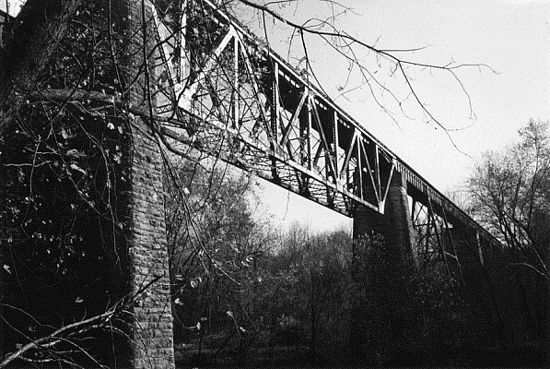The Germans led the way across the rail bridge and formed line of battle in the soggy fields south of the river. Presently, four regiments stood on line in the mud awaiting orders to advance. It soon became known that the call to arms took place due to the ignorant prank of a soldier dropping live artillery shot in a campfire. Fortunately there were no casualties. After numerous false alarms it became necessary to determine just what lay beyond the Union lines.
Buell ordered a reconnaissance in force to push forward ten miles to the town of Horse Cave in order to get a better grasp of the situation on the road ahead. On January 26, the 32nd Indiana, together with a company of the 3rd Indiana Cavalry, moved out cautiously along the turnpike south. Sharing in the muddy struggle down the road came the 1st Wisconsin Infantry Regiment, following behind as reserves. Horse Cave proved to be empty of the enemy as the force entered town unopposed. Residents, those who would speak, reported that the Confederates fell back to new lines at Rocky Hill, around eight miles further to the south. The reconnaissance party passed on through the village for a short distance before turning back to headquarters.
They returned to Munfordville with an excellent report of the situation out as far as ten miles beyond the Union lines. At least four miles of the turnpike was blocked by felled timber; bramble and wide trenches cut across the roadbed. Telegraph lines and poles between Munfordville and Horse Cave were torn down. The rail line was completely destroyed at regular intervals throughout the distance. Many of the fresh water sources along the route were polluted with the dead carcasses of farm stock. The Rebels had done their best to deprive the Nationals of any subsistence from the surrounding region for as far as the patrol penetrated. These destructive efforts would not long impede the Army of the Ohio.
Supplies and reinforcements, to include new clothing issues, arrived at a rapidly increasing rate over the following two weeks in anticipation of the push ahead. Organizations formed, such as a Signal Corps, and a Pioneer Corps based on Willich's pontonier system. The Pioneers would assist three companies of the newly arrived 1st Michigan Engineers and Mechanics Regiment. All of these preparations for the move against the enemy had a curing effect on the morale of the army, but sickness continued to plague many men.

The railroad bridge at Munfordville today retains the original massive stone piers. This view looking
south shows the location of the pier destroyed during the Civil War partially obscured by undergrowth.